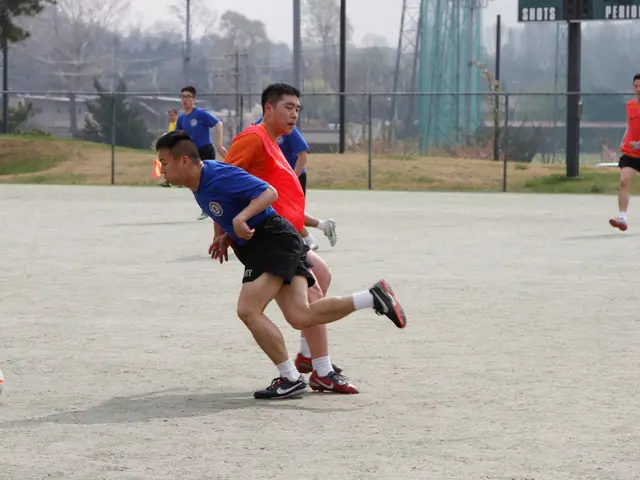Slamming the Brakes on Energy Drinks for Minors
Illegally Peddling Energy Drinks to Underage Individuals Carries Penalties Equivalent to Alcohol Sales
Tomorrow, the Russian legislative body, the State Duma, is set to weigh in on the second reading of amendments to the Code of Administrative Offenses. These proposed modifications seek to impose penalties for peddling energy drinks to underage youngsters.
If the proposed rules are approved, businesses found guilty of this offense could face a whopping fine of up to 500,000 rubles—the heftiest sanction a legal entity may incur.
This penalty structure mirrors the existing fines for illegally selling alcoholic beverages to minors. As of June 7, 2025, penalties for individuals and officials violating such regulations range from 30,000 to 50,000 rubles and 100,000 to 200,000 rubles, respectively[2][3].
A law banning energy drink sales to minors was already enacted on March 1, 2025. In case of any doubt regarding the buyer's age, retailers have the legal right to demand identification to confirm age[4].
The proposed law seems poised to proceed through its second and third readings, eventually being adopted in its final form.
Chairman of the State Duma Vyacheslav Volodin explained, "This measure is another stride forward in our ongoing efforts to safeguard the health of the younger generation."
These beverages, while heralded for speeding up reaction time, increasing endurance, and combating drowsiness[1], can be fraught with danger when consumed in excess. Overindulgence in caffeine can trigger heart problems, while the concoction of caffeine, carbonic acid, and sugar wreaks havoc on the digestive system[1]. Even occasional consumption can trigger arrhythmia and exacerbate cardiovascular issues, particularly in individuals predisposed to such conditions.
Energy drinks are strictly off-limits for children, adolescents, pregnant and nursing women, the elderly, and those afflicted with chronic illnesses[1].
Given their popularity amongst combat soldiers during the zone of the special military operation[5], energy drinks have earned a significant following. However, their allure belies the numerous health risks associated with their usage.
[1] https://www.ncbi.nlm.nih.gov/pmc/articles/PMC7490470/[2] https://www.rg.ru/2023/02/10/duma-probudet-vek-vnutrennyj.html[3] https://www.svpressa.ru/society/article/617586/[4] https://www.gazeta.ru/organizations/2025/03/01/n16437138.shtml[5] https://www.mil.ru/rmdf-news/news_page/2022/12/27/7062930/
Science has brought us energy drinks, marketed for their ability to enhance reaction time, boost endurance, and combat drowsiness. However, health-and-wellness professionals caution that excessive consumption can lead to heart problems and digestive system issues. Despite their popularity in sports, these beverages should be avoided by children, pregnant and nursing women, the elderly, and those with chronic illnesses.








